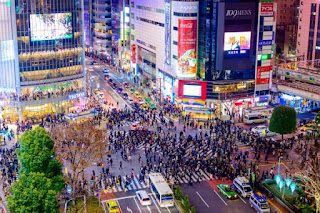So, I figured now would be a good time to tell the world about Super-Golden Week. This week marks the end of an era in Japan, literally. A new emperor will be named and in the land of 12-hour, six-day work weeks, everyone--well, arguably many people--will have the longest holiday they have seen: 10 solid days off. That is, unless you have any responsibility involving the calendar changes. The year in Japan will be going from Hesei 31 to Reiwa 1 on May 1st. This means there will be countless Japanese IT workers chewing on pens at midnight the way the world did for y2k.
For many people though, it seems a great time to travel, camp and relax. I hope this is truly the case.
As I'm sure many reading this know, those of us here who are not Japanese live a blessed life. Though there are of course certain problems (glass, nay, concrete ceilings, always being an "outsider") for the most part (and I know there are exceptions; and in particular with people newly emigrating from other parts of Asia to do manual labor) we're not expected to pull the crazy hours that our colleagues must.
Some of you not in Japan may have just a sense of how much people work here, so let me clarify it for you. Many white-collar workers in Japan work hours of overtime everyday. Many people with well-paying jobs are expected to work most weekends too; some people I know work 6-days a week every week, others get only a few days off a month. In addition to this, many are also expected to work through part or all of the longer holidays (Golden Week this time around being an exception) and are expected not to take contracted days off work.
People actually die of overwork here. Not suicide due to overwork (although this happens frequently enough) but die of exhaustion.
I don't think this nonstop-work is the case for all workers here, but it is for enough that it seems the norm. And with very little interest from the powers that be to enforce any restrictions, it seems to be a growing trend. It's a hard life.
I worry in particular about having a family here because I think my immunity to working those hours (or, in other words, the fact I have the work I do have) is achievable only that I'm not Japanese. Though my son may grow up to be better than me at the work I do, he'll be expected to preform his duties as a Japanese citizen.
So, for those of you reading this who, like me, have found a way to enjoy these long breaks from work and make a living, let's keep in mind those of our friends, colleagues and family who are still plugging away. Let's help Japan make much needed reform or help our help the next generation find a way away from this country working them to death.

